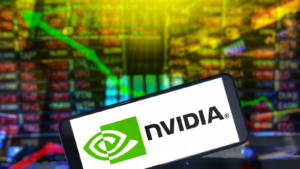3 Quantum Computing Stocks That Will Skyrocket Before 2024
Quantum computing is a technological field that utilizes superposition to accelerate computing speed. Stocks in the field are inherently interesting as our digitized world benefits from any increases in the speed at which computations are done.
Quantum mechanics deals with matter at small scales at which physical properties change. Matter exhibits characteristics of both particles and waves. Quantum computing leverages special hardware to take advantage of those properties and increase computational speeds. Increased computational speeds are increasingly important, especially as we enter the age of AI, which requires greater quantities of data to be processed.
Let’s look at a few stocks best positioned to take advantage of the rise of quantum computing.
FormFactor (FORM)
FormFactor (NASDAQ:FORM) is a semiconductor stock that also touches on the quantum computing industry. The firm provides testing and measurement solutions. Much of what the company does focuses on the stage when chips are still on a wafer before packaging.
It operates through a Probe Cards segment and a Systems segment. Probe cards are interfaces that allow chip function to be tested while the chips are still on the wafer before packaging. FormFactor’s Systems segment does similar work.
The latter segment was particularly strong and boasted near-record revenues and gross margins. Overall revenues of $167.4 million exceeded the outlook range as well. FormFactor doesn’t anticipate much top-line growth in Q2, but that’s not really a big deal.
The company was chosen as one of six EPIC Outstanding Suppliers to Intel (NASDAQ:INTC) within a supply that includes thousands of other suppliers.
Intel recently released a quantum computing chip expected to advance spin qubit research, which may power future scalable quantum computers. FormFactor, a valued supplier, has excellent potential to rise this year.
IonQ (IONQ)

IonQ (NYSE:IONQ) stock has been on a dramatic run this year. That run has seen company shares move from under $4 to above $14. The stock is above levels reached when the company debuted publicly back in 2021 but well below all-time highs above $30 reached late that year.
What is arguably most interesting about IonQ is the fact that its quantum hardware is currently the only one available on all of the leading cloud platforms.
In May, Amazon Web Services (AWS) added support for IonQ’s Aria to its quantum computing service, Braket. That service already features another IonQ device called Harmony. Adding Aria allows users to compare and contrast both IonQ products through AWS.
IonQ was first made available through Azure Quantum last year. The fact that IonQ first debuted on Azure and, more recently, on AWS speaks volumes about its utility. The major cloud players recognize its value, making it entirely possible that IONQ shares will skyrocket before 2024.
Nvidia (NVDA)

Nvidia (NASDAQ:NVDA) stock is likely to continue to skyrocket in 2023 for many reasons. It simply is not slowing despite concerns that it is overvalued — a stance that has plagued it since its huge Q2 guidance. The company’s Q2 sales guidance of $11 billion sent shares from $300 to $390 overnight. They’ve incrementally moved higher to about $460 at the time of writing. So, they may just continue with or without the help of quantum computing.
Nevertheless, quantum computing certainly does promise to help move Nvidia even higher this year. CuQuantum is Nvidia’s software development kit for quantum computing workflows. Its DGX Quantum computing system allows researchers to create quantum computing applications and leverages Nvidia GPUs for quantum computing. Nvidia GPUs are the most powerful AI chips available, meaning that advances in quantum computing are likely to be directly attributable to Nvidia. That is one of the many ways Nvidia can continue to move higher on its AI prowess even as the naysayers’ cries grow louder.
On the date of publication, Alex Sirois did not hold (either directly or indirectly) any positions in the securities mentioned in this article. The opinions expressed in this article are those of the writer, subject to the InvestorPlace.com Publishing Guidelines.

